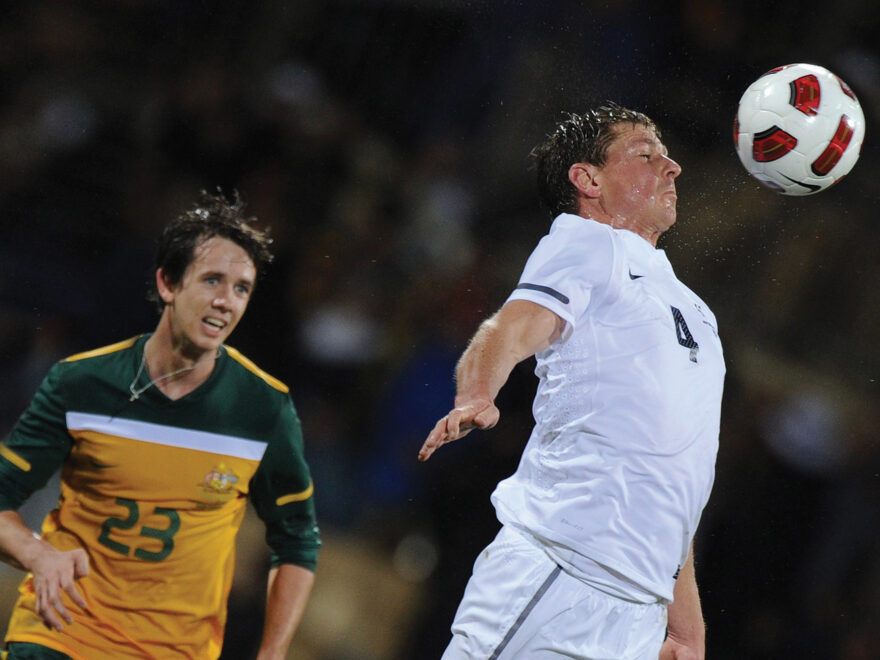When the All Whites run out onto Eden Park next month, it will mark the end of a long drought.
Perhaps more importantly, it could also signal the beginning of a vital new partnership.
Chris Wood and his teammates haven’t been seen on New Zealand soil in almost five years, since the Fifa World Cup qualifying game with Peru in Wellington in November 2017.
That will finally change on September 25 when they face Australia in Auckland, 1,780 days since their last appearance on these shores.
It’s a staggering time frame, even with the disruption of the Covid pandemic.
The team’s presence is a welcome bonus for Kiwis sports fans, especially given their progress in recent years.
But the most vital aspect is the reignition of a trans-Tasman rivalry in men’s football, something that hasn’t existed for more than a decade.
Such competition is taken for granted in other sports.
The All Blacks have faced the Wallabies 37 times since 2010. In the same period the Silver Ferns and Australian Diamonds have crossed paths in 61 games, while the Black Caps have battled Australia
on numerous occasions across all formats of cricket.
But the All Whites haven’t played Australia since June 2011, which was one of only three games since 2005.
The main catalyst for the disengagement was Australia’s move to the Asian Football Confederation in 2006, while New Zealand remained within Oceania, which meant calendars rarely aligned.
But that wasn’t the only reason. There was also a lack of interest from Australia – who felt they had bigger fish to fry – while the relationship between the respective federations wasn’t always that close.
Thankfully that’s changing.
NZF Chief executive Andrew Pragnell has made it a priority to improve the Anzac football connection since he started his tenure in 2019 and the successful joint bid to host the 2023 Women’s World Cup has further aligned the organisations.
September is a centenary celebration, commemorating the first clashes in 1922 between the two nations, when New Zealand and Australia met in Dunedin
(3-1), Wellington (1-1) and Auckland (3-1).
It’s a massive occasion but won’t be a one off.
It’s expected that there will be future series, most likely on a biannual basis. Both nations have recognised the importance of more contact and the All Whites’ increasing competitiveness on the world stage has helped that equation, with their outstanding performance against Costa Rica in June testimony to the level they have reached.
There will be other benefits to the improved relationship, with more chance of twin clashes for overseas teams who make the long journey to Australasia.
If a team is coming this far, it’s much more attractive and commercially viable to tack on an extra fixture on either side of the Tasman, as happened in 2010 when Paraguay played in Wellington and Sydney after the World Cup.
The All Whites need more intense, meaningful competition because the gulf with most of the Oceania teams is still too vast.
More games with Australia is a start, which could extend into increased contact with other Asian nations.
NZF is keen to have more regular fixtures with countries such as China, Japan and South Korea. Aside from the large resident populations from those nations – which help interest and potential crowds – the All Whites have established rivalries with all three nations (14 previous clashes with China; eight against South Korea and six with Japan).
Such initiatives are long overdue. This All Whites team is a special generation and it looks like they will get a chance to spread their wings.
Michael Burgess
Sports Writer

